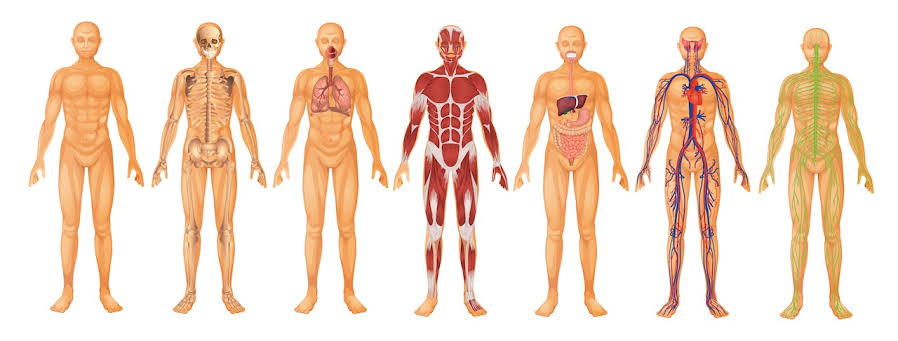Unlocking the Wonders Within: Exploring the Complexity of the Human Body
The human body is a marvel of biological engineering, a masterpiece of intricate systems working in harmony to sustain life. From the microscopic intricacies of cells to the macroscopic organization of organs and systems, the complexity of the human body is both awe-inspiring and humbling. In this article, we delve deep into the wonders of human anatomy and physiology, unraveling the complexities that make us who we are.
%20(6).jpeg) source
source The Blueprint of Life: Cellular Complexity
At the foundation of human complexity lies the cell, the basic structural and functional unit of life. Within each cell, a symphony of molecular interactions orchestrates essential processes such as metabolism, growth, and reproduction. From the DNA molecules that contain our genetic code to the organelles that perform specialized functions, every component plays a vital role in maintaining cellular homeostasis.
The diversity of cell types within the human body is staggering, with specialized cells tailored for specific functions. Neurons transmit electrical signals in the brain, muscle cells contract to produce movement, and immune cells defend against pathogens. Despite their differences, all cells share fundamental characteristics that underscore their unity and interconnectedness.
Organ Systems: Collaboration and Coordination
Beyond the cellular level, the human body is organized into distinct organ systems, each with its unique structure and function. From the cardiovascular system, responsible for circulating blood and nutrients throughout the body, to the nervous system, coordinating sensory input and motor responses, these systems work together seamlessly to maintain physiological balance.
The complexity of organ systems lies not only in their individual intricacies but also in their integration and coordination. Hormonal signals regulate processes such as metabolism and growth, while neural networks transmit information at lightning speed, orchestrating complex behaviors and responses. The cardiovascular system delivers oxygen and nutrients to every cell, while the respiratory system removes waste products and maintains acid-base balance.
Dynamic Adaptability: Homeostasis and Regulation
Central to the complexity of the human body is its ability to maintain homeostasis, a dynamic equilibrium that ensures internal stability despite external fluctuations. From temperature regulation to blood sugar control, a myriad of feedback mechanisms continuously monitor and adjust physiological parameters to keep the body functioning optimally.
The endocrine system, comprising glands such as the pituitary and thyroid, secretes hormones that regulate various bodily functions, including metabolism, growth, and reproduction. The immune system mounts a defense against invading pathogens, distinguishing self from non-self and mounting targeted responses to threats.
The Brain: The Seat of Consciousness
At the pinnacle of human complexity lies the brain, the command center of the nervous system and the seat of consciousness. Comprising billions of neurons interconnected in intricate networks, the brain processes sensory information, generates thoughts and emotions, and coordinates voluntary and involuntary actions.
The complexity of the brain transcends its structural organization, encompassing cognitive functions such as memory, learning, and decision-making. Neurotransmitters, chemical messengers that transmit signals between neurons, modulate brain activity and underlie emotions and behaviors.
The Human Body: A Symphony of Complexity
In conclusion, the complexity of the human body is a testament to the ingenuity of evolution and the resilience of life itself. From the microscopic interactions of cells to the macroscopic organization of organ systems, every aspect of human anatomy and physiology reflects a delicate balance of structure and function.
Understanding the intricacies of the human body not only deepens our appreciation for the wonders of life but also informs medical practice and scientific inquiry. By unraveling the mysteries of human complexity, we gain insights into health and disease, paving the way for advances in medicine and technology.
%20(7).jpeg) source
source As we continue to explore the depths of human biology, let us marvel at the beauty and complexity of the human body, a symphony of life unfolding within each of us.
Thank you for your witness vote!
Have a !BEER on me!
To Opt-Out of my witness beer program just comment STOP below
View or trade
BEER.BEERHey @ulqu3, here is a little bit of from @isnochys for you. Enjoy it!BEER at dCity game to buy cards to rule the world.Did you know that <a href='https://dcity.io/cityyou can use